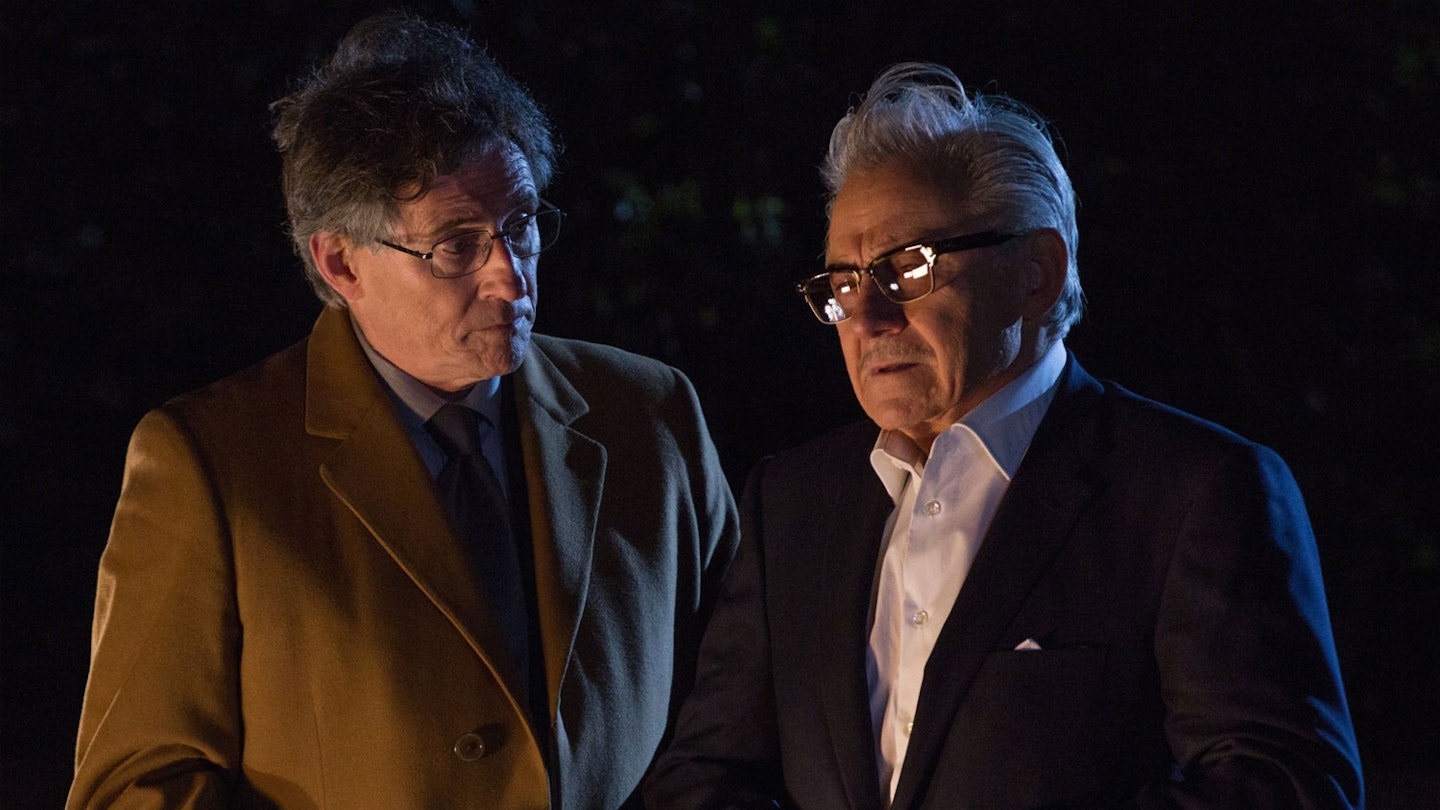The poster for Lies We Tell seems to promise a hard-boiled urban thriller, with a shotgun-packing Gabriel Byrne centre stage and Harvey Keitel glowering behind him. The Usual Suspects meets Reservoir Dogs in Bradford, perhaps. What we get, though, is a very different proposition. The first film by Indian director Mitu Misra, who also came up with the story, it’s a glacially paced, very serious look at the practice of arranged marriages in a Muslim community in Yorkshire.
Which is certainly a worthy subject for a film, particularly one that features Gabriel Byrne with a shotgun. Unfortunately, it’s a tough watch for other reasons: dour, over-long and with a fair bit of clumsy dialogue, it presents a world you’ll likely yearn to escape from almost as much as some of its characters do.
The set-up plays like a spin on film noir. Byrne’s taciturn chauffeur, Donald, makes a living ferrying around his boss Demi (Keitel, whose total screen time amounts to about five minutes), until the latter’s death leads him to a house he’s supposed to clean of evidence of Demi’s adultery. There he encounters young Pakistani woman Amber (Sibylla Deen), who’s been having an affair with his employer, and is drawn into the murky Bradford underworld, personified by vicious gangster KD (Jan Uddin), who has designs on Amber’s younger sister. With its slow-burn pace and many tangled threads — KD has history with Amber herself too, and is drawing her mentally challenged brother into trouble — it does feel a little Raymond Chandler-esque, had the crime novelist been born near the Pennines.
As a thriller, Lies We Tell fails to get up much of a head of steam.
Mista does manage to muster up some menace, not least in the film’s stand-out scene, a gang meet-up in a grim club for the purposes of selecting a spouse for a particularly terrifying-looking gentleman. With belly dancers, debauched drummers and fireworks in the car park, there’s a vivid sense of sleaze and danger. But as a thriller, Lies We Tell generally fails to get up much of a head of steam — whatever tension is built tends to evaporate as it cuts to, say, Byrne’s character flying a kite in a field at midnight (there are reasons). And there are two other major flaws: as a villain, KD is over-ripe, while the score is jarringly saccharine, often making it sound like the film is morphing into an advert for Quality Street.
There are clearly good intentions behind the project and Byrne and Deen both give strong performances. But it badly needed to be streamlined, paring away less essential moments. Did we really need to see Mark Addy piss in a sink?

